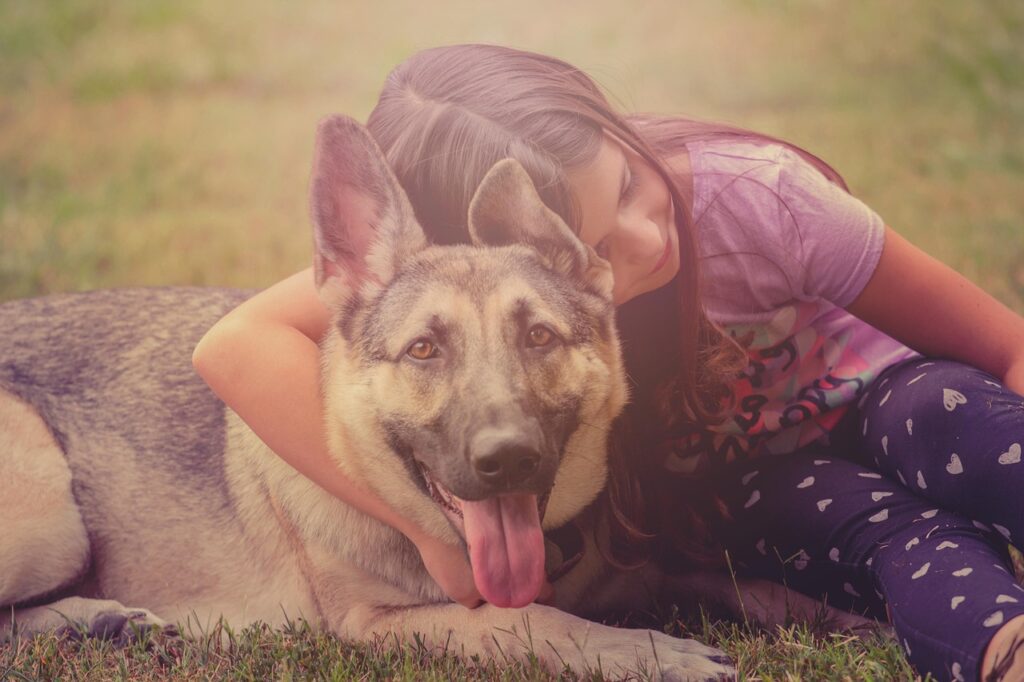As a child, I grew up surrounded by animals—dogs, cats, and even a few hamsters. I often remember the feeling of being by their side, whether I was playing in the backyard or simply cuddling on the couch. Back then, I didn’t realize it, but my furry companions were doing more than just offering comfort. They were contributing to something far more important: my immune health.
In fact, I often wonder how much of my own resilience to colds, allergies, and even stress can be attributed to the microbes they brought into my world. Fast forward to today, and I’m excited to share that science backs up what many of us already intuitively knew—pets are incredible for building stronger immune systems.
In today’s hyper-sanitized world, it’s easy to assume that the cleaner your child’s environment, the healthier they’ll be. But science is telling a different story—one in which exposure to microbes, especially those brought in by household pets, plays a critical role in building a resilient immune system.
Instead of viewing dirt and germs as the enemy, researchers are discovering that our immune systems need them—especially during early childhood. And pets are nature’s perfect (and adorable) way of introducing beneficial microbes into our homes.
So, let’s dive into how having a pet may help your child grow up stronger, healthier, and more allergy-resistant. Here are 5 surprising benefits of pets on your child’s immunity:
1. Pets Expose Kids to Helpful Microbes Early On
Children’s immune systems develop rapidly in the first few years of life. One of the best ways to “train” the immune system is through exposure to a variety of microbes—the good, the bad, and the educational.
Pets like dogs and cats introduce a broad range of environmental bacteria into your home, especially when they go outdoors and come back inside. These microbes are transferred through fur, paws, and even licking—and that’s a good thing.
Why it matters: Studies show that kids exposed to pets in their first year of life develop a more diverse microbiome, the ecosystem of bacteria in and on the body that helps regulate immune responses.
📖 Source: NIH Study on Dog Ownership and Gut Microbes

2. Lower Risk of Allergies and Asthma
One of the most well-documented benefits of pet ownership in early life is a reduced risk of developing allergies and asthma. While it might sound counterintuitive, exposure to pet dander and microbes during infancy actually helps the immune system build tolerance.
A Canadian study from the University of Alberta found that babies exposed to pets had higher levels of two gut bacteria—Ruminococcus and Oscillospira—which are linked to reduced risk of allergic diseases and obesity.
Another study published in JAMA Pediatrics found that children exposed to dogs in their first year were 13% less likely to develop asthma by age six.
📖 University of Alberta Study
📖 JAMA Pediatrics: Dog Exposure and Asthma Risk
3. Better Gut Health, Better Mood
It’s not just about avoiding illness—pets may also help support your child’s mental wellbeing by influencing their gut health.
The gut is often called the “second brain” because of its role in producing mood-regulating chemicals like serotonin. A diverse gut microbiome (which pets help build) is increasingly linked to lower anxiety, better emotional regulation, and even lower risk of depression.
Research into the gut-brain axis suggests that early microbial exposure through pets can help create a foundation for both physical and emotional health.
4. Microbial Exposure Without Compromising Hygiene
We’re not suggesting you stop washing hands or keeping a clean home. But over-sanitizing—especially with harsh antibacterial cleaners—can strip away the beneficial bacteria that help kids build a balanced immune system.
Pets offer a more natural, gradual, and safe form of microbial exposure. Letting your kids cuddle with the dog, feed the cat, or play in the yard with their furry friend allows their immune system to adapt the way nature intended.
The goal is hygiene, not sterility. Teach kids to wash hands after handling pet waste or before eating—but there’s no need to sanitize every paw print.
5. Pets Build Routine, Outdoor Time, and Joy
Beyond the microbial benefits, pets promote habits that are naturally good for health: daily movement, time outdoors, and emotional bonding.
For children, this translates to:
- More time playing outside (hello, Vitamin D and stronger bones!)
- A sense of purpose and responsibility
- Lower cortisol (stress hormone) levels from pet interaction
- Less screen time, more real-world connection
All of these contribute to a holistic form of wellness that supports a strong, adaptable immune system.
Final Thought: Pets as Immune Allies
In a world filled with hand sanitizer and air purifiers, the idea of inviting more germs into your home may seem backwards—but when it comes to immune development, exposure to pet microbes is actually a gift.
By sharing their space (and yes, their bacteria) with your child, pets help the immune system learn what to fight and what to accept—leading to fewer allergies, stronger guts, and happier minds.
So, the next time your dog tracks in dirt or your cat curls up on your child’s bed, smile. They’re not just sharing love—they’re sharing health.




Pingback: The Mental Health Magic of Pets: 5 Ways They Make Life Better